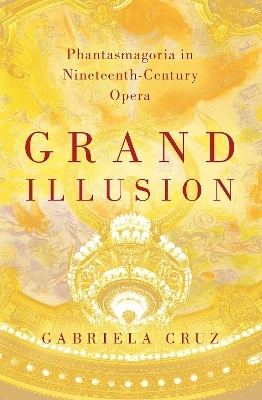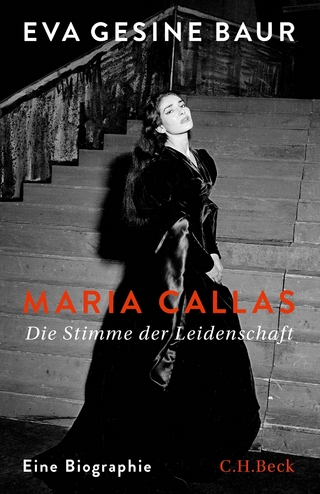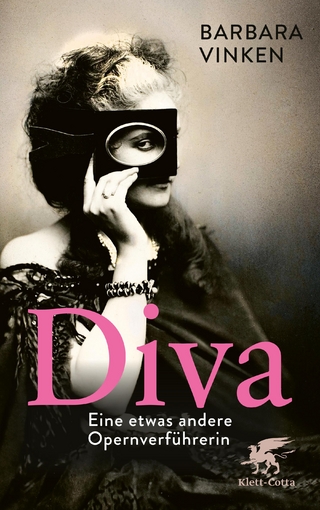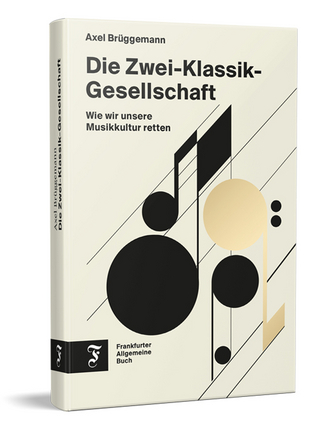
Grand Illusion
Phantasmagoria in Nineteenth-Century Opera
Seiten
2020
Oxford University Press Inc (Verlag)
978-0-19-091505-6 (ISBN)
Oxford University Press Inc (Verlag)
978-0-19-091505-6 (ISBN)
A new and groundbreaking historical narrative, Grand Illusion: Phantasmagoria in Nineteenth-Century Opera explores how technical innovations in Paris transformed the grand opera into a transcendent, dream-like audio-visual spectacle.
A new and groundbreaking approach to the history of grand opera, Grand Illusion: Phantasmagoria in Nineteenth-Century Opera explores the illusion and illumination behind the form's rise to cultural eminence. Renowned opera scholar Gabriela Cruz argues that grand opera worked to awaken memory and feeling in a way never before experienced in the opera house, asserting that the concept of "spectacle" was the defining cultural apparatus of the art form after the 1820s. Parisian audiences at the Académie Royale de Musique were struck by the novelty and power of grand opera upon the introduction of gaslight illumination, a technological innovation that quickly influenced productions across the Western operatic world. With this innovation, grand opera transformed into an audio-visual spectacle, delivering dream-like images and evoking the ghosts of its audiences' past.
Through case studies of operas by Giacomo Meyerbeer, Richard Wagner, and Giuseppe Verdi, Cruz demonstrates how these works became an increasingly sophisticated medium by which audiences could conjure up the past and be transported away from the breakdown of modern life. A historically informed narrative that traverses far and wide, from dingy popular theatres in post-revolutionary Paris, to nautical shows in London, and finally to Egyptian mummies, Grand Illusion provides a fresh departure from previous scholarship, highlighting the often-neglected visual side of grand opera.
A new and groundbreaking approach to the history of grand opera, Grand Illusion: Phantasmagoria in Nineteenth-Century Opera explores the illusion and illumination behind the form's rise to cultural eminence. Renowned opera scholar Gabriela Cruz argues that grand opera worked to awaken memory and feeling in a way never before experienced in the opera house, asserting that the concept of "spectacle" was the defining cultural apparatus of the art form after the 1820s. Parisian audiences at the Académie Royale de Musique were struck by the novelty and power of grand opera upon the introduction of gaslight illumination, a technological innovation that quickly influenced productions across the Western operatic world. With this innovation, grand opera transformed into an audio-visual spectacle, delivering dream-like images and evoking the ghosts of its audiences' past.
Through case studies of operas by Giacomo Meyerbeer, Richard Wagner, and Giuseppe Verdi, Cruz demonstrates how these works became an increasingly sophisticated medium by which audiences could conjure up the past and be transported away from the breakdown of modern life. A historically informed narrative that traverses far and wide, from dingy popular theatres in post-revolutionary Paris, to nautical shows in London, and finally to Egyptian mummies, Grand Illusion provides a fresh departure from previous scholarship, highlighting the often-neglected visual side of grand opera.
Gabriela Cruz is a musicologist specializing in opera and musical theater in the nineteenth and early twentieth centuries. She teaches courses on nineteenth-century music, opera, and the music of the Iberian peninsula at the University of Michigan.
List of Illustrations and Note on Translations
List of Music Examples
Preface and Acknowledgments
Introduction: The Modernity of Grand Opera
1. Opera and Beauty
2. Gaslight and Phantasmagoria at the Opéra
3. The Diorama, Apparitions and Dream Image in Robert le Diable
4. The Phantom Ship in Der fliegende Holländer and L'Africaine
5. The Poetics of Sensation in L'Africaine and Tristan und Isolde
6. Aida, Egyptomania and the After-Life of Grand Opera
Works Cited
| Erscheinungsdatum | 03.09.2020 |
|---|---|
| Zusatzinfo | 14 illustrations; 39 music examples |
| Verlagsort | New York |
| Sprache | englisch |
| Maße | 239 x 155 mm |
| Gewicht | 590 g |
| Themenwelt | Kunst / Musik / Theater ► Musik ► Klassik / Oper / Musical |
| Kunst / Musik / Theater ► Theater / Ballett | |
| ISBN-10 | 0-19-091505-6 / 0190915056 |
| ISBN-13 | 978-0-19-091505-6 / 9780190915056 |
| Zustand | Neuware |
| Haben Sie eine Frage zum Produkt? |
Mehr entdecken
aus dem Bereich
aus dem Bereich
wie wir unsere Musikkultur retten
Buch | Hardcover (2023)
Frankfurter Allgemeine Buch (Verlag)
24,00 €


